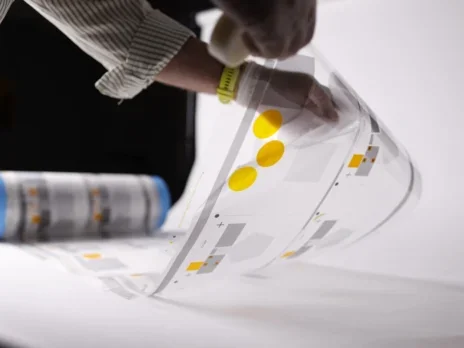Education secretary Gillian Keegan launched new technology standards for schools and colleges this week and spoke about the growing role artificial intelligence (AI) can play in education. But despite this enthusiasm from Whitehall, experts are sceptical and question whether AI has matured enough to be used effectively.

Addressing delegates at the BETT conference in London yesterday, Keegan said the first priority for the government was meeting the basic technology requirements of schools. This includes ensuring that schools have adequate connectivity, as the UK government has pledged to enable all schools to connect to gigabit broadband by 2025. Keegan confirmed that the government would be upgrading school WiFi networks that didn’t meet the connectivity standards and had weak school outcomes in 55 local authorities across the country.
The education secretary then talked about the launch of the latest set of technology standards, which would build on a previous version published last year. These standards, she said, would help schools develop effective and safe strategies including safeguarding pupils from harmful and inappropriate material online.
Two pilots were also announced in Blackpool and Portsmouth, which Keegan said were both priority education investment areas. These pilots will help schools meet standards, make the best use of their technology, and plan more effectively for the future. These pilots will serve as evidence of other schools and colleges can see what products can do in the real world and what will work for education.
Keegan teases AI plan for schools and colleges during speech
She then went on to talk about AI which she described as the “game changer”.
“AI will have the power to transform a teacher’s day-to-day work,” Keegan said. “We’ve seen people using it to write lesson plans and some interesting experiments around marking too.”
However, Keegan says that AI was not a standard that education needed today, though she believes that the industry could get to applying where it could significantly reduce the drain on teachers’ time.
“Just as we’d responded to innovations like the calculator or Google, we all use technology to deliver bad outcomes for students,” says Keegan.
Content from our partners

Resilience: The power of automating cloud disaster recovery

Are we witnessing a new ‘Kodak moment’?
How the logistics sector can address a shift in distribution models
The education secretary’s speech coincides with the Department for Education (DfE) launching its statement that describes the opportunities and the risks that AI can bring to the education sector. The policy paper focuses on the use of generative AI based on large language models, like ChatGPT or Google Bard.
View all newsletters Sign up to our newsletters Data, insights and analysis delivered to you By The Tech Monitor team
“My hope is that quite soon I’ll be able to tell you more about how we can establish a plan for getting the most out of AI in education, as well as protecting against the risks,” Keegan told delegates. “Tech is a tool, and it’s one that schools haven’t yet managed to get the most out of, but it can’t be the tail that wags the dog.”
The education sector is behind on its digital journey
However, experts have spoken to Tech Monitor and are not as convinced as Keegan about how AI will be used in the education sector.
Adam Speight, a teacher based in Wales, told Tech Monitor that Keegan’s suggestion that “day-to-day work be transformed by AI” failed to acknowledge how far behind the sector still is on its digital journey.
“If you think back to pre-Covid-19, many of the technologies that are now embedded in both personal and professional lives weren’t used anywhere near to the extent that they are now,” Speight said.
“From video conferencing tools to ordering and paying for food via QR code the changes have been profound. We’re at a similar fork in the road with AI. We all know that it’s here to stay however we don’t yet know how it will play out – especially across the education sector.”
The teacher explains that while schools have embraced new technology, if they fully reflected on their practices the majority would agree that they still don’t fully understand how this new digital world works. “How could they, when most educators haven’t lived in it?,” he says.
Speight continues that AI could be “either a saviour or destroyer” in the education sector – the question is which one will it be?
“From the perspective of an educator, AI has the potential to complete the mundane and tedious hours wasted marking,” he explains.” It has the potential to gather data and provide insights to help learners achieve their full academic potential it has the ability to help educators plan and develop lessons which are more data reform than ever before.”
However, it could also pose many problems. The Joint Council for Qualifications, which represents eight exam boards across the UK, has recently launched guidelines about using AI for non-examination assessments, which raises the issue of authenticity.
“How will we know the work which lens produces their own work? How will we encourage learners to produce work and develop their creative flair when, at the click of a button, AI will do all the hard work for them?” asks Speight.
AI could leave a “worrying lack of accountability” around homework
Another academic Dr Russell Crawford, director of academic innovation quality, Falmouth University, shares this concern. He told Tech Monitor that the possibility that AI could write homework and a different AI could mark homework leaves a worrying lack of accountability.
As part of the policy paper on generative AI in education, Dr Crawford flags that the DfE has stated that “schools may wish to review their homework policies to consider the approach to homework and other forms of unsupervised study is necessary to account for the availability of generative AI.”
“The worrying aspect of this is a position that supervision is the way to balance this, as is better at home like this needed rather than more stringent way to do the same homework,” explains Crawford.
Conversely, Crawford does agree that AI could have the power to transform a teacher’s day-to-day work in schools and colleges as well as in higher education: “There is a place that AI is enhancing the quality of learning when it comes at the cost of having to have a very clear understanding of what these AI’s can, cannot and should not be doing.”
It’s clear that the UK government are trying to get in front of the curve when it comes to AI but as Geoff Martin, general secretary of the Association of School and College leaders told Tech Monitor, “AI is only in its infancy” and while in the future it could become a useful tool for teachers in the classroom it’s a “long term project”.
“[It needs to be] established how best to integrate AI and other emerging forms of technology into the wider curriculum,” he said “the problem is that teachers and leaders have excessive workloads right now caused chiefly by government policy including one-time cuts to funding.
“Immediate steps must be taken to address this. It’s not enough to wait and hope that technology can mitigate this issue in the future.”
Read more: AI could help teachers identify special educational needs
Topics in this article : artificial intelligence , Digital transformation in education
